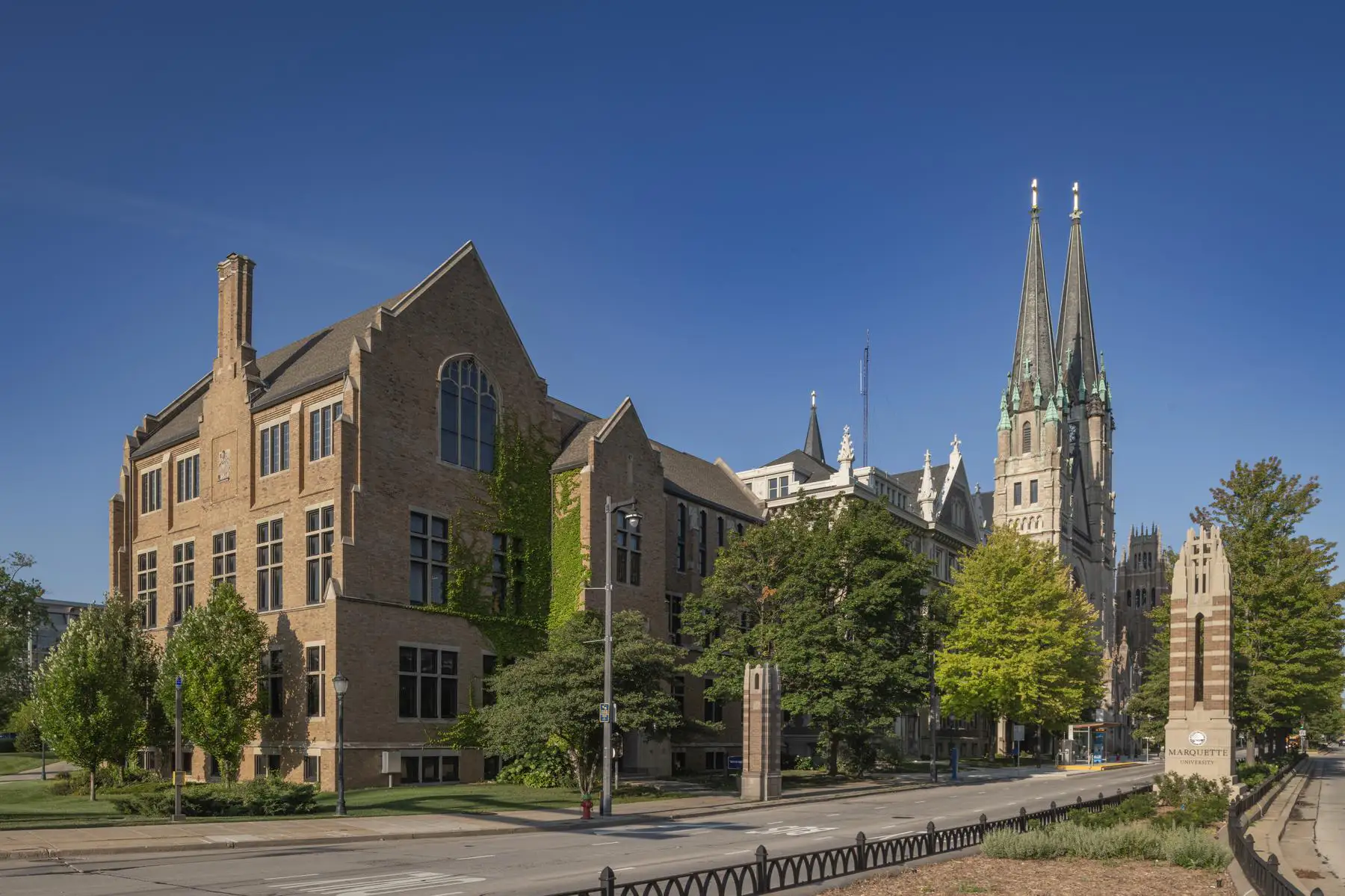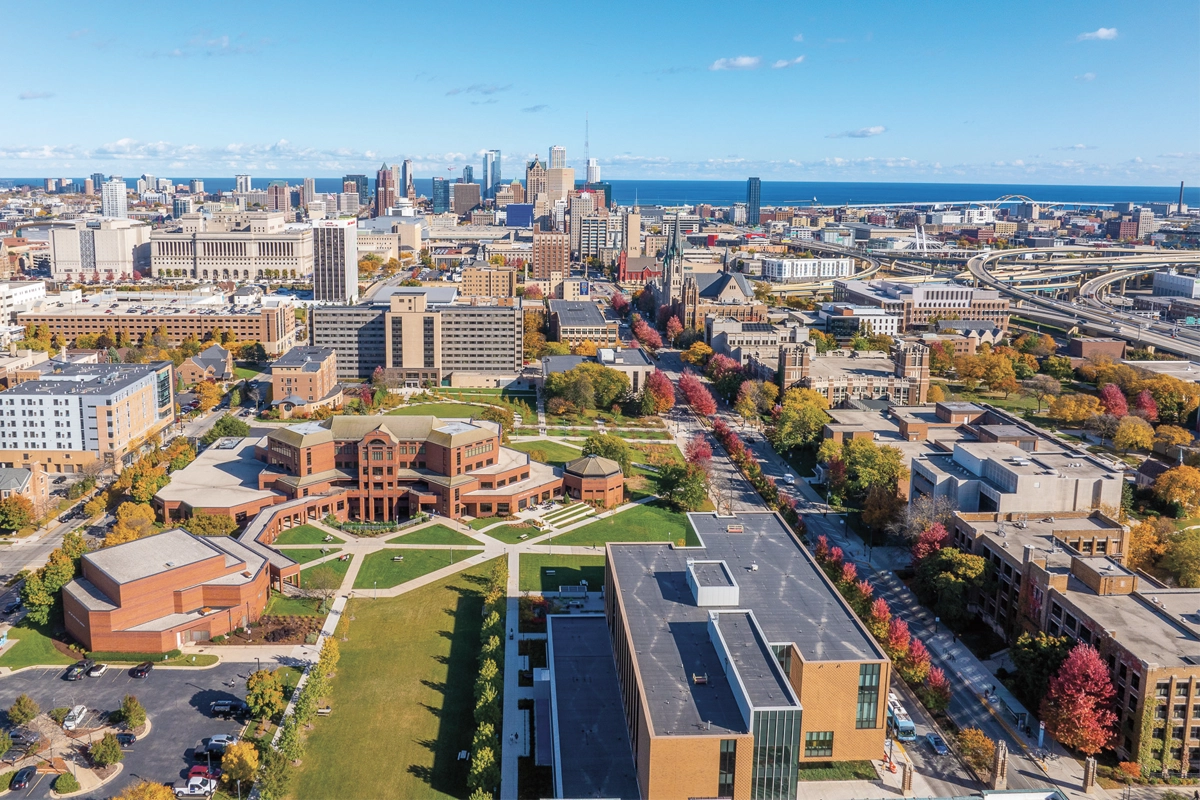Explore what it means to be human as you investigate the stories of humanity — from ancient civilizations to modern communities. With a focus on hands-on learning, you'll step out of the classroom and into the field, engaging in internships, research and service learning projects that not only deepen your knowledge but also put it into action in real-world settings. Choose to focus your studies with elective courses that concentrate in cultural anthropology, biological anthropology or archaeology.
And because everything we do here is in service to the greater good, you'll graduate with a deep understanding of how your knowledge and skill can change the world for the better.

Sensenbrenner Hall, College of Arts and Sciences
The ability to make significant positive change in the world requires knowing more than one area well. And since our College of Arts and Sciences is the most academically diverse college on campus, we're the perfect place to prepare for your role as a changemaker. So broaden your expertise by adding at least one additional major or minor to your degree — 73% of our students do.
About half of our anthropology graduates go on to professional and graduate schools, while the other half go directly into the workforce prepared to be critical thinkers in a variety of positions and fields. Here’s where some of our recent graduates landed.

While you’re here at Marquette, preparing you for what’s next will be one of our top priorities. So, expect lots of learning by doing, connecting with others who share your passions, and reflecting on how you can Be The Difference.
Many of your anthropology courses will incorporate hands-on experience through lab classes, service-learning opportunities and fieldwork. You can also work through our department to find internship placements.
Work on research projects with expert faculty during any semester through an independent study course. And, present your findings at our annual student-led Research Salon.
Here are just a few of the diverse projects our faculty and students are investigating:
Become a people-centered leader guided by our Jesuit tradition. Join our E-Lead program sophomore year and you’ll complete a combination of leadership courses and experiences that prepare you to be the driver of innovation for the common good.
You’ll develop the skill set to generate innovative solutions and the mindset to reflect on the impact your work has on the world. Bonus: You’ll graduate with a concentration in leadership, too.
Expand your anthropology education with a semester abroad. Study program course work at prestigious universities around the world. Other international opportunities are available for anthropology students through core courses, summer study, language study, faculty-led programs or research.
A Marquette education equips students to thrive professionally and personally through overall student support, career preparation and an extended family that can't wait to meet you. But don't just take our word for it.
Zippia.com
The Wall Street Journal
The Princeton Review (private universities)
